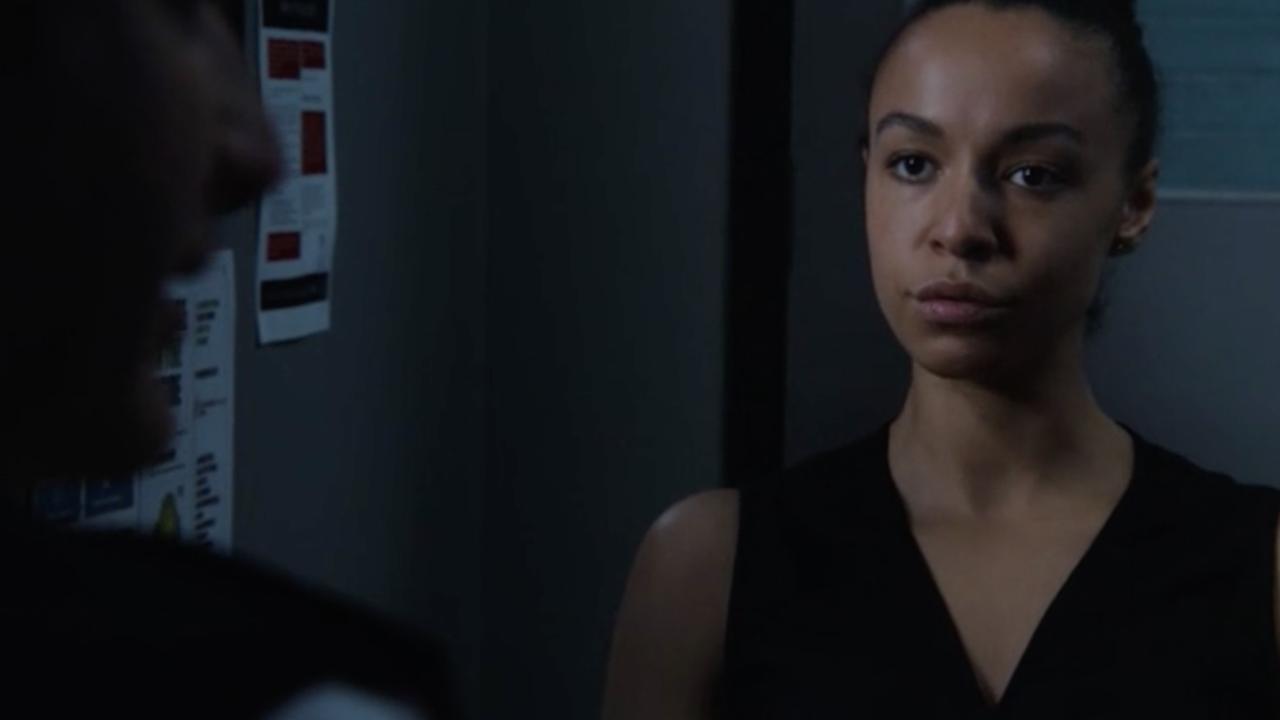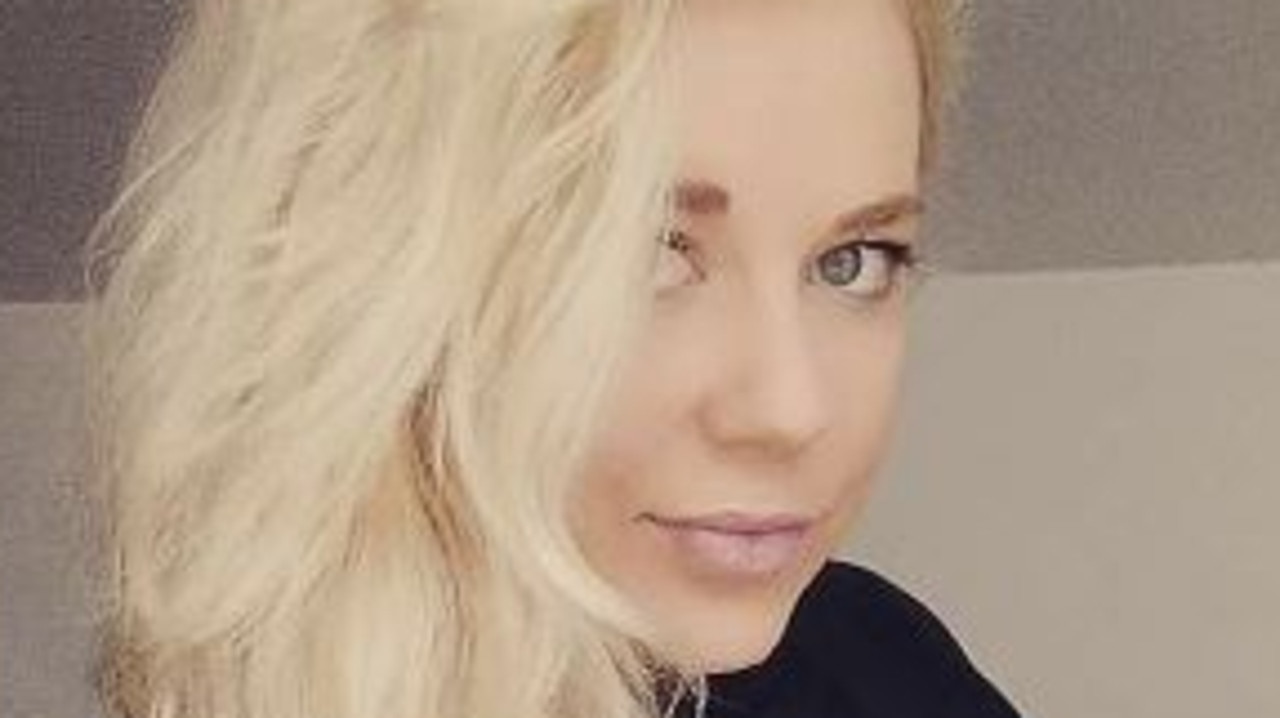How John Farnham became The Voice: Extract of Whispering Jack by Jane Gazzo
JOHN Farnham had hit rock bottom. Living in a rented house, he couldn’t even afford to buy his son McDonald’s on his birthday. Then came Whispering Jack.
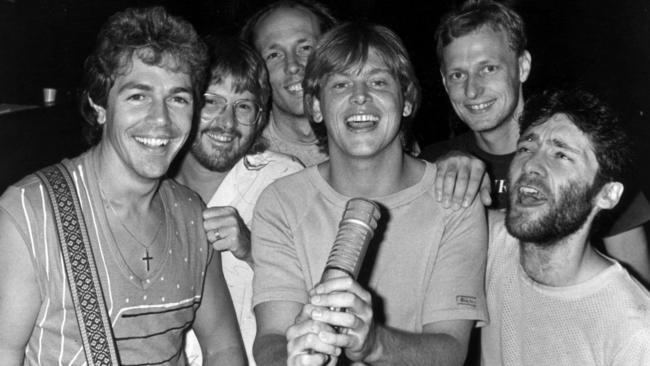
Confidential
Don't miss out on the headlines from Confidential. Followed categories will be added to My News.
JOHN Farnham had hit rock bottom. Living in a rented house, he couldn’t even afford to buy his son McDonald’s on his birthday. Then came Whispering Jack.
Edited extract from Whispering Jack, by Jane Gazzo
“S--T! What a year!” John Farnham told the audience at the Sheraton Wentworth Hotel. He was referring to the previous year, 1986, in which he’d released Whispering Jack, and he had just received his fourth ARIA award, for highest-selling album. “I nearly said f--k then — sorry!”
The crowd, which was almost entirely made up of members of the Australian record industry, here for the inaugural awards, laughed along with John.
They were having a wonderful night, thanks to the comedic hosting talents of Elton John and the free-flowing booze.
“It’s unbelievable and I’ve never said that publicly before,” Farnham added, as he held onto the award a little tighter. He looked out to the audience, basking in the applause and enjoying the ovation.
He could hardly believe how far he’d travelled in such a short period of time. Just after completing Whispering Jack, Farnham had been struggling terribly — “panic attacks, the whole box and dice”, he admitted years later.
Nobody, not even his best mate, Glenn Wheatley, knew how bad things had been. Sometimes it can be hard for blokes to share their troubles and only Jillian really saw the extent of Farnham’s anxiety.
The singer had put everything he had into Whispering Jack and it had almost finished him. With the album complete, but not yet released — and with his career on a precipice — he was crippled by self-doubt and fear.
Now John Farnham, or Jack, was back, and he was bigger and better than ever. So just how did this former apprentice plumber from Noble Park via Dagenham, Essex, become the most successful recording artist and entertainer in the country?
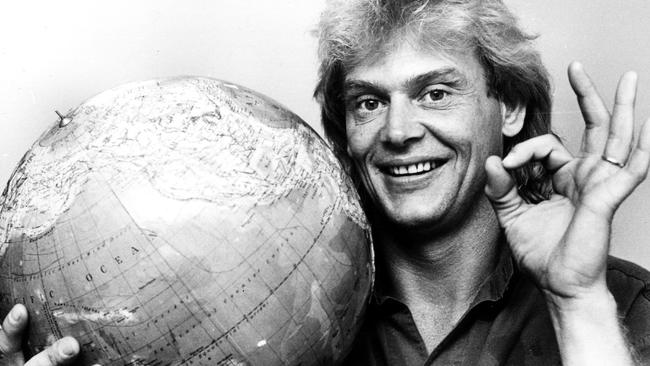
GLENN Wheatley had 12 knock-backs with the Little River Band before he got them a record deal in the early 1970s. Now, over a decade later, Wheatley found himself pounding pavements, hoping for a deal for John Farnham.
There was no bite from the major labels, so Wheatley approached some producers. Quincy Jones and fellow American David Foster had expressed interest, but Foster wouldn’t record John without a deal in place and Quincy apparently asked for a sky-high fee.
Jillian Farnham advised her husband that if he was going to make a solo album, now was the time to do it. She knew he needed to prove himself and would be remorseful if he didn’t act soon.
John began looking for songs he could potentially record and started filing them away in ‘yes’ and ‘no’ boxes.
Meanwhile, Real Life’s road manager and sound engineer, Ross Fraser, had spoken to Wheatley about lending a hand to find songs for John. Glenn had known Fraser for a number of years — he’d been the Wheatley organisation’s house producer since 1982. Fraser had recently remixed Pseudo Echo’s debut album for the US market and Wheatley was happy to have Fraser assist. He figured Ross could help record some demos, which in turn would hopefully attract a big-name producer.
The hunt was now on for suitable material. Wheatley used whatever clout he could muster to get the publishing companies to hand over the good stuff. LRB keyboardist David Hirschfelder was brought in to play on the sessions, as was an unknown 22-year-old guitarist from Castlemaine in regional Victoria, Brett Garsed.
Garsed had sent Wheatley a four-track instrumental demo tape he’d recorded in his bedroom. The next thing he knew, he had joined John for some shows and was asked to contribute to the album. He would go on to become one of the longest-serving Farnham band members.
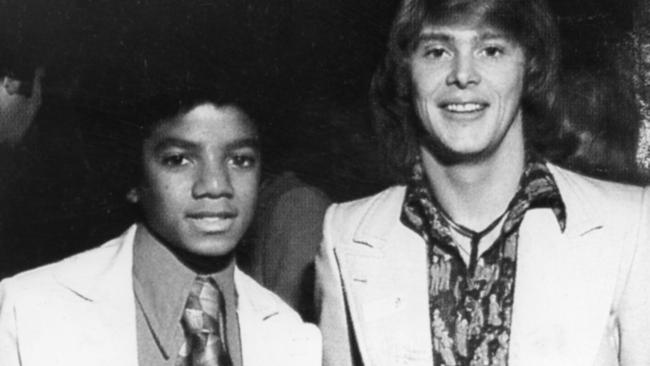
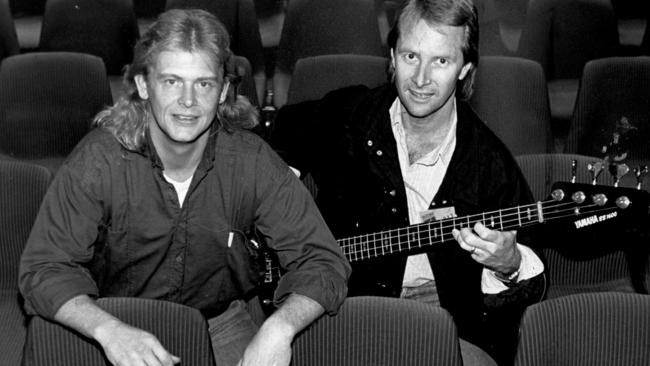
Fraser and Farnham began working in the garage of John’s rented house in Bulleen in Melbourne’s northeastern suburbs and found they had a good rapport. There, they waded through over 2000 tapes. Said John: ‘I listened to every one of them right the way through. After a few you do get a bit brain dead, but you can’t afford to miss any.’
Soon they had around 15 songs that “smacked us in the face”.
The making of Whispering Jack was a series of never-ending 18-hour days. John had an old four-track recorder hooked up in his garage where the songs would be played and recorded.
‘There was never a feeling we’d better make this the one,’ said David Hirschfelder of the sessions. ‘You just wanted it to sound great and for it to have a good feel. It wasn’t as though we were thinking that this was John’s last chance.’
But secretly, John knew this record would be make or break. He was 37 years old and under no illusions that if this didn’t work, he’d be in a precarious position. It would be back to the RSLs and nightclubs once more. However, at least with this album he’d be doing things on his own terms and not having to compromise with other band members.
In lieu of record company cash, Glenn Wheatley made the courageous decision to mortgage his house to fund the recording — the only collateral being John’s voice and his belief in him. It’s understood some members of Farnham’s family also chipped in smaller amounts.
By this stage, a producer was yet to be found but John felt comfortable enough to let Ross Fraser handle the entire production. It was a risky move, as Fraser had never produced an album before. Glenn would now have a tougher job on his hands: he had a singer no major record company wanted, as well as a first-time producer.
John had a few songs he’d written himself for the album: Let Me Out, a track he’d penned while in LRB, and Going Going Gone — a co-write with Hirschfelder and Fraser.
Another song chosen early on for Whispering Jack was A Touch Of Paradise, written by Ross Wilson in the early days of Mondo Rock.

ONE of the biggest problems John found in LRB was that often he couldn’t relate to the material he was singing. Ultimately, he sang the songs in tune but felt he had put nothing of himself into them. This time around he was determined to connect to the material he was choosing. For the first time in his career, John Farnham had the luxury of having a deeply personal attachment to an album. He had final say on the songs, the cover concept, the arrangements, and even who played on them.
Melbourne-based songwriter Sam See, who wrote the very catchy Reasons for the Whispering Jack album, once said to John, ‘You’ll never write a good song, Farnham, you’re always too bloody happy.’
See and John’s friendship was based on the love of childish delight. ‘We used to go up to his place at Bonnie Doon and do stupid boy things,’ says See, ‘even though we were certainly not boys anymore. I remember one day he was in his overalls and I was in my daggy clothes and I said, “Have you ever burnt a garbage bag over a fire?” And we sat there and I think we burnt about 10 garbage bags. We were cackling like fools. It really was a sweet time in my life.’
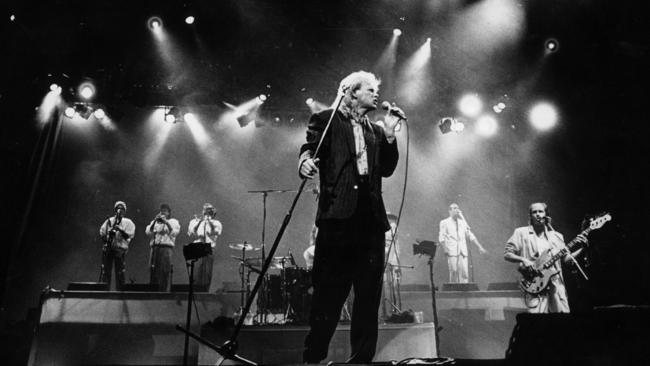
PRESSURE Down, which became the opening track of the album, was found in John’s massive demo-tape box. It was written by British-born Harry Bogdanovs, who had previously written with Dire Straits guitarist David Knopfler. Bogdanovs also had another track chosen for Whispering Jack called Love To Shine.
Perhaps the most amusing story from the intense Whispering Jack period came from John himself, when he admitted to finding a girlie magazine in the recording studio. Cabin fever had descended upon the assembled throng of Fraser, engineer Doug Brady and bassist Roger McLachlan.
‘I got to the back [of the magazine] and there were all these ads for phone sex. None of us had seen them before. So I said, “Let’s ring up for a quote.” ’
In the mid-’80s phone-sex lines were in their infancy and the then-0055 numbers proved to be quite the novelty among the men.
‘We each took a turn ringing up for a quote — it was childish,’ Farnham says. ‘The girls were happy to talk us through it, because it was all so new.’
Their questions — what happens, the cost, dirty-talk etiquette — were politely answered over a speakerphone, with this kicker, ‘Oh yes, darling, there is no restriction on subject or language.’ For days, it was a running joke. John decided to continue with the gag on the opening track of the album, Pressure Down: there is a voice whispering, ‘There is no restriction on subject or language ...’
‘It was boarding-school boys humour stuff,’ admits Roger McLachlan, who also rang up one of the phone-sex workers. ‘I was the last bunny to do it. I picked a number, called it, and [joking] I said to her, “Look, okay, that’s all great, but, how can I say it, I like guys, I like men. Can I talk to a guy?” ’
The woman on the other end responded in a deep intonation: ‘If I lower my voice, does that do anything for you?’
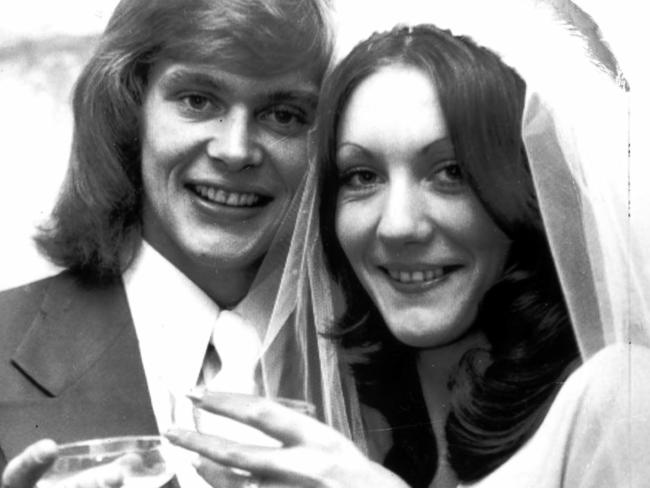
TWELVE weeks from the day John Farnham and Ross Fraser began working in the garage under a very ordinary suburban home on Manningham Rd, Bulleen, the album was completed.
In an effort to curb further expenses, Glenn Wheatley forced an early finish but John had given it his best shot. He handed Glenn a final mix of the album on cassette with a handwritten note: ‘Dear Boss, This is the best that I can do. Thanks for the chance. Love John’.
John Farnham went through a severe depression after he made Whispering Jack. According to a few close to him, he had struggled on and off with mild depression over the years, but nothing like what he suffered after the album’s completion. He had little money and was living in a low-rent house that he barely left. This album was crucial to him. And it wasn’t necessarily success he was worried about — it was more about it being given a fair go and a fair listen to by people who had preconceptions of him. John wanted to prove to himself and to everyone else that he wasn’t a washed-up cabaret singer anymore. There was also a financial concern with the album — everything was hinging on it being accepted.
‘After finishing the album, I didn’t feel like eating for two weeks,’ said Farnham. ‘One time I was literally lying on the lounge-room floor in a foetal position, sobbing with fear. It was just awful.’
Listening to the thundering traffic outside his rented home on busy Manningham Rd, John didn’t even have enough in his pockets to take son Robbie to McDonald’s for a birthday treat.
Over the years, Farnham has spoken many times of the situation he found himself in when it came time for the listening party. Jill drove to AAV Studios where they were going to play the album and celebrate its completion. John lay on the floor crouched beneath the passenger seat of the car, sobbing, telling his wife he didn’t want to go inside. Jill told him to pull himself together.
“Just before Whispering Jack, I was on skid row,” said Farnham. “When it was finished I just wanted to crawl under the bed and sleep for the rest of my life. If it wasn’t for Jill, I’d probably still be under that bed.”
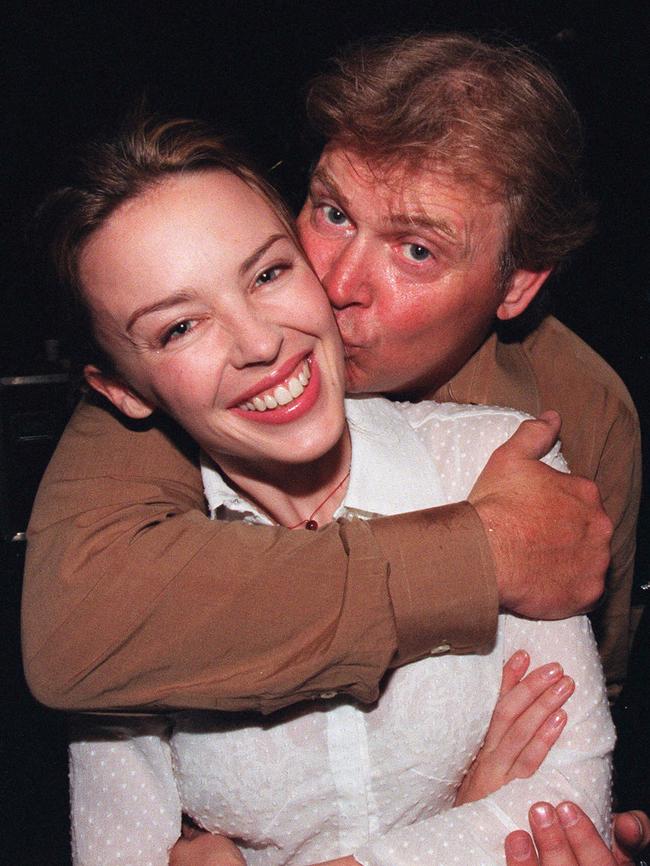
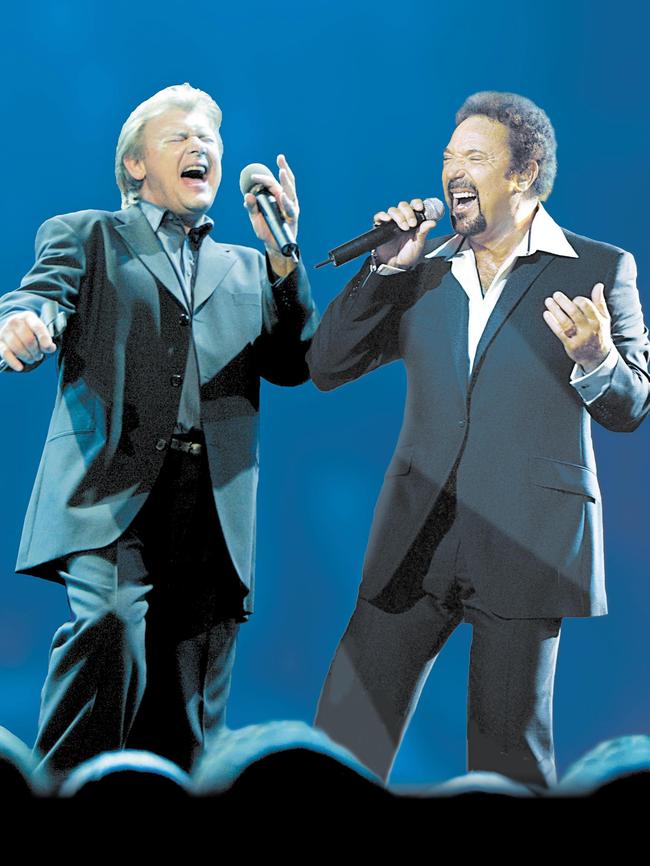
GLENN Wheatley was still searching for a record company to put out John’s ‘comeback’ album. It would be released on his own label, Wheatley Records, but they needed the backing of a major company to distribute the album into shops around Australia.
Like the bad suit he’d worn at the Twin Towns RSL in the late ’70s, nobody wanted to touch John Farnham. The last resort was RCA Records, which at the time had no Australian artists on its books. The managing director at RCA was Brian Smith. After hearing the demo for You’re The Voice, he told Wheatley, ‘You’ve got a deal.’
The cheque RCA handed over wasn’t enough to cover the money Glenn had already spent on the record, but at least the deal was in place. ‘There was genuine excitement at RCA when we delivered it,’ Glenn said.
Once the album was completed, Wheatley knew he had a massive job on his hands promoting it to radio, press and television. Glenn had to deal with the stigma of ‘Johnny’ Farnham. It would be fair to say that some radio programmers thought John too uncool for their formats and dismissed him. Wheatley had to devise a plan to get them to listen to the album. He sent copies out to taste-makers wrapped in a brown paper bag, but they weren’t fooled. There was even difficulty in getting any media to turn up to the Melbourne press conference to launch the album. Many of them regarded John as past his use-by date. One Sydney rock station famously told Wheatley, ‘Glenn, this station does not play “Johnny” Farnham!’
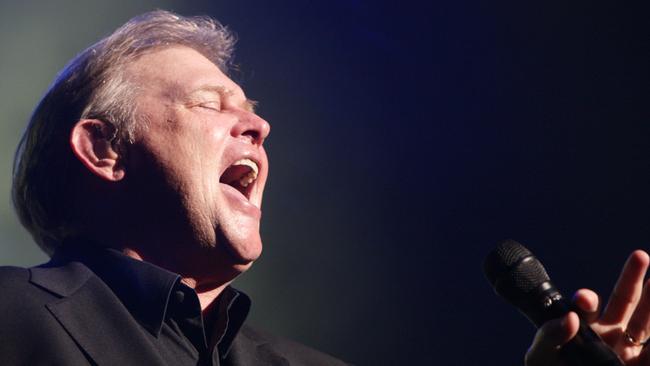
Wheatley figured if radio wouldn’t play the record, then TV was the key to getting the word out there. It had worked when Glenn launched John on The Don Lane Show with LRB. Farnham was booked and appeared on all the important morning and chat shows. The viewing audience hadn’t forgotten John and soon the album was moving units.
Magically, radio came on board when listeners started to ring and request You’re The Voice. 2Day FM in Sydney was one of the first to add it. The song quickly climbed the charts and other radio stations followed.
Whispering Jack was officially released on 20 October 1986 and by November, John Farnham’s prayers had been answered. The 37-year-old held the top spot on both the Australian single and album charts. Whispering Jack stayed at number one for an unbelievable 27 weeks.
One of John’s favourite quotes of the time is: ‘Glenn believed in me so much that he mortgaged his house so I could make this album. He put his money where my mouth is.’
Glenn says, ‘It was more than confidence in John; it was more a commitment. I always felt he could do it ... I simply had to go for this. It was as important to me as it was for John.’
It’s hard to quantify the impact Whispering Jack had on Australia when it was released and what it did for the music industry. It was proof that an almost-forgotten artist could rise phoenix-like from the ashes and be embraced by fellow Australians. But he had the voice and talent to back it and a song called You’re The Voice, which would become the perfect nickname for a man who did in fact possess ‘the voice’.
His self-deprecating humour and generally good-bloke-next-door demeanour appealed to a nation that traditionally berates people who take themselves too seriously or come across as too entitled. John also had the benefit of reuniting with fans who had been there first time round with Sadie, and, without losing them, he then collected new fans with Whispering Jack — a very fortunate position to be in.
A story often recounted by Glenn Wheatley is the day Whispering Jack went to number one. Glenn was driving John home. ‘I was saying, “Do you realise, John, that we have a number-one record?” I’m going through this whole rave, but John was very quiet. I looked towards him at the traffic lights and he had tears coming down his cheeks. He said, “I can’t believe this is happening.” ’
John Farnham, the singer that no record company wanted to sign, and Ross Fraser, the unknown record producer, had managed to pull off a miracle.
From John Farnham — The Untold Story by Jane Gazzo
RRP $34.99 by Ebury Australia. Available now from bookstores and online retailers
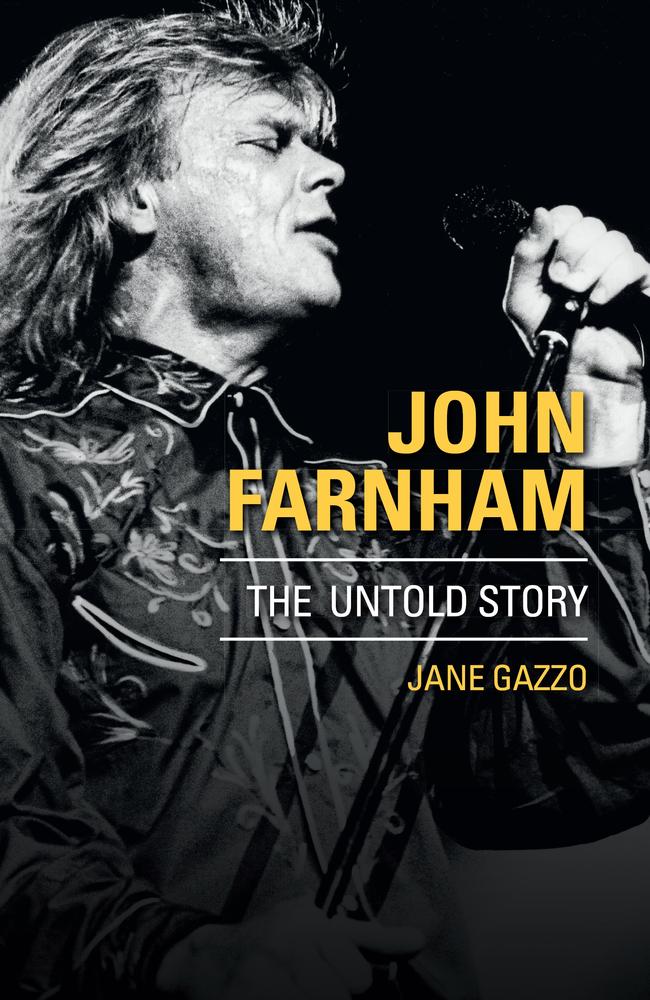
Reader offer:
Buy John Farnham — The Untold Story by Jane Gazzo, for the special reader price of $29.99 including delivery. Buy online at heraldsun.com.au/shop, call 1300 306 107 from 10am Monday or post a cheque to Book Offers: P.O. Box 14730 Melbourne Vic 8001. Please allow 14 days for delivery.

